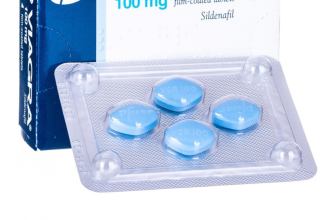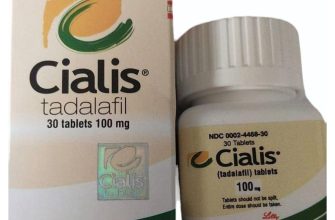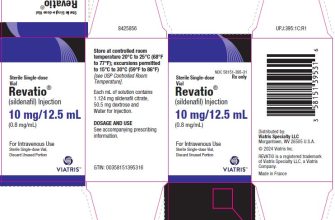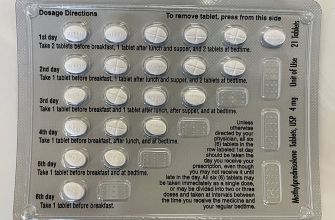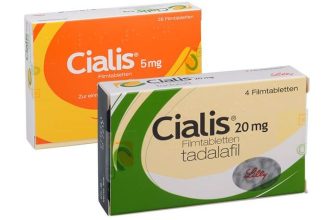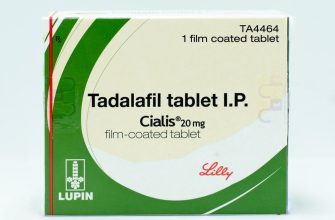Looking for information on Accutane in Spanish? The medication’s name translates to isotretinoin. Understanding this crucial distinction is your first step. This article provides clear, concise information to help you navigate discussions with healthcare providers and access accurate resources.
Remember, isotretinoin requires careful monitoring. You’ll find Spanish-language resources available online and through reputable medical institutions, although verifying their credibility is paramount. Always confirm information with a doctor or pharmacist before making decisions related to your health.
Searching for “isotretinoin” (or “Roaccutan,” another common brand name) in Spanish will yield better results than simply searching for “Accutane.” Be proactive: ask your doctor for reliable Spanish-language materials or websites focusing on isotretinoin. This ensures you receive accurate, medically approved information tailored to your needs.
- Accutane in Spanish: A Comprehensive Guide
- Understanding the Spanish Name for Accutane
- Brand Names
- Finding Information
- Prescription
- Common Side Effects of Accutane in Spanish-Speaking Countries
- Managing Other Side Effects
- Finding a Dermatologist Who Speaks Spanish
- Accessing Accutane Through the Spanish Healthcare System
- Accutane Costs and Insurance Coverage in Spanish-Speaking Regions
- Cost Variations
- Insurance Coverage
- Recommendations
- Additional Factors
- Support Groups and Online Resources in Spanish for Accutane Users
- Navigating Accutane’s Potential Interactions with Other Medications (Spanish Considerations)
- Common Interactions to Discuss with Your Doctor
- Addressing Concerns About Birth Control
- Important Safety Precautions and Warnings in Spanish
- Sun Sensitivity
- Dryness
- Other Potential Side Effects
- Reporting Problems
- Spanish Resources
- Long-Term Effects and Follow-Up Care in Spanish
- Potential Long-Term Effects
- Follow-Up Care Recommendations
- Pregnancy Prevention
Accutane in Spanish: A Comprehensive Guide
In Spanish, Accutane is most commonly known as isotretinoína. You’ll find this name on prescriptions and in medical discussions.
Remember to always consult a dermatologist for accurate diagnosis and treatment. Self-treating is risky. They will assess your skin condition and determine if isotretinoína is the right choice for you and prescribe the appropriate dosage.
Side effects vary. Common ones include dry skin, lips, and eyes. Some people experience joint pain or digestive issues. Your doctor will discuss these possibilities and how to manage them. Regular blood tests monitor for potential liver issues.
Pregnancy is a serious contraindication. Strict birth control measures are mandatory during treatment and for a specified period afterward. Your doctor will explain the required methods and precautions in detail.
Finding a qualified dermatologist who speaks Spanish is recommended for clear communication. Online directories or your primary care physician can assist in this search.
| Spanish Term | English Translation |
|---|---|
| Isotretinoína | Isotretinoin (Accutane) |
| Dermatólogo | Dermatologist |
| Efectos secundarios | Side effects |
| Embarazo | Pregnancy |
| Control de natalidad | Birth control |
Be sure to openly discuss any concerns or questions with your doctor. Maintain open communication for the best results. Following your doctor’s instructions closely is paramount for successful treatment and minimizing potential problems.
Understanding the Spanish Name for Accutane
Accutane’s Spanish name varies depending on the country and pharmaceutical company. You’ll often find it marketed as isotretinoína. This is the generic name for the active ingredient, and it’s the most common way to refer to the medication in Spanish-speaking regions.
Brand Names
Be aware that brand names differ significantly. For instance, you might encounter Roaccutan or other proprietary names. Always verify the active ingredient to confirm you’re getting isotretinoína, the Accutane equivalent.
Finding Information
When searching for information online, using “isotretinoína” provides more accurate and relevant results than using “Accutane” in Spanish. This ensures you receive details specific to the drug’s availability and use in Spanish-speaking areas.
Prescription
Remember: Accutane, or isotretinoína, requires a prescription. Never attempt to obtain or use it without a doctor’s authorization.
Common Side Effects of Accutane in Spanish-Speaking Countries
Dry skin is frequently reported, often affecting the face, lips, and body. Patients should prioritize daily moisturization with fragrance-free products and use lip balms regularly. Consider using a humidifier to combat dryness in drier climates prevalent across parts of Latin America.
Managing Other Side Effects
Many experience dry eyes, necessitating frequent lubrication with artificial tears. Some individuals note nosebleeds; gentle nasal moisturizing can help. Gastrointestinal issues, including nausea and diarrhea, are possible; maintaining a balanced diet and staying hydrated are key. Changes in mood, like depression or anxiety, are also reported, demanding close monitoring and open communication with both your dermatologist and a mental health professional if needed. Remember to report any concerning symptoms to your doctor immediately.
Sun sensitivity is another common concern. Consistent use of high SPF sunscreen is vital, particularly in regions with strong sunlight like parts of Mexico and the Caribbean. Regular blood tests, monitoring liver function and lipid levels, are standard practice and should be followed diligently. These tests help ensure early detection and management of any potential complications. Adherence to the prescribed dosage and careful monitoring are crucial for safe and effective treatment.
Finding a Dermatologist Who Speaks Spanish
Check your insurance provider’s website. Many insurers offer online directories with doctor profiles listing languages spoken.
Utilize online search engines. Refine your search using terms like “Spanish-speaking dermatologist [your city/region]”.
Explore community resources. Local Hispanic community centers or organizations often maintain lists of bilingual healthcare professionals.
Contact your primary care physician. They may have recommendations or know dermatologists who are fluent in Spanish.
Review online doctor review sites. Look for patient reviews mentioning language proficiency. Filter by language if the site allows.
Directly call dermatology clinics. Ask about Spanish-speaking staff members during the initial phone call.
Consider telehealth options. Many telehealth platforms offer Spanish-speaking dermatologists.
Don’t hesitate to ask potential dermatologists about their Spanish fluency level before scheduling an appointment.
Accessing Accutane Through the Spanish Healthcare System
To obtain Accutane (isotretinoin) in Spain, you’ll need a prescription from a dermatologist. This is a strictly controlled medication.
First, schedule an appointment with a dermatologist. Explain your skin condition clearly. They will assess your suitability for Accutane, considering factors like your skin type and medical history. Blood tests will be required to check your liver function and lipid levels before starting treatment. Pregnancy tests are mandatory for women of childbearing age, and they must commit to using reliable contraception during treatment and for at least one month after.
The process may involve multiple appointments. Be prepared to discuss your treatment expectations and any potential side effects. Your dermatologist will explain the medication’s use, potential side effects, and required monitoring throughout the treatment.
| Step | Action |
|---|---|
| 1 | Find a dermatologist. Use online search engines or ask your general practitioner for a referral. |
| 2 | Schedule a consultation. Be prepared to describe your skin condition thoroughly. |
| 3 | Undergo necessary blood tests. |
| 4 | Discuss treatment options and side effects with your dermatologist. |
| 5 | Begin treatment if approved. Attend follow-up appointments as scheduled. |
Accutane is covered, to varying degrees, by Spain’s public healthcare system (Sistema Nacional de Salud, or SNS). Coverage depends on your specific regional healthcare system and individual circumstances. Expect to discuss potential costs with your doctor or the healthcare provider to understand your out-of-pocket expenses.
Remember, always follow your doctor’s instructions carefully. Regular monitoring is crucial for safe and effective treatment.
Accutane Costs and Insurance Coverage in Spanish-Speaking Regions
Securing Accutane in Spanish-speaking countries involves understanding varying costs and insurance policies. Prices fluctuate significantly across nations and even within individual countries due to factors like local regulations and pharmacy pricing.
Cost Variations
Expect considerable price differences. For example, a month’s supply might cost $100 in one region, while another might charge $300. These differences stem from import regulations, local drug pricing, and the specific brand of isotretinoin available.
- Mexico: Costs vary widely depending on pharmacy and location. Always compare prices beforehand.
- Spain: Public healthcare generally covers Accutane, though private insurance often provides quicker access and potentially more choices.
- Argentina: Similar to Mexico, prices vary greatly. Consider contacting multiple pharmacies for price comparisons.
- Colombia: Similar to other Latin American countries, medication costs are influenced by import fees and local market dynamics.
Insurance Coverage
Insurance coverage for Accutane is inconsistent across Spanish-speaking regions.
- Public Healthcare Systems: Many public healthcare systems in Spain and some parts of Latin America may cover Accutane, but access can be challenging due to bureaucratic processes and potential waiting times. Prior authorization is often required.
- Private Insurance: Private insurance plans generally offer better coverage, including reduced out-of-pocket costs, expedited access, and fewer hoops to jump through. However, coverage specifics differ greatly between insurers.
- Always Verify Coverage: Before starting treatment, contact your insurance provider to confirm coverage details, including pre-authorization requirements, co-pays, and any limitations.
Recommendations
- Compare Prices: Obtain quotes from several pharmacies.
- Check Insurance Policies: Thoroughly review your policy for details on dermatological medication coverage.
- Consult a Dermatologist: A dermatologist can advise on treatment options and help navigate the insurance process.
- Consider Generic Options: Generic isotretinoin is usually significantly cheaper than brand-name Accutane.
Additional Factors
Remember, the total cost involves not just the medication itself, but also associated doctor visits, lab tests, and potential side effect management. Budget accordingly.
Support Groups and Online Resources in Spanish for Accutane Users
Finding reliable Spanish-language support is key during Accutane treatment. Here’s how to locate helpful resources:
- Spanish-speaking dermatology clinics: Many dermatology practices offer support in Spanish. Call clinics in your area and inquire about their language services or patient support groups.
- Online forums: Search for Spanish-language forums dedicated to acne or Accutane. Be discerning and prioritize forums with active moderation to ensure accurate information.
- Social media groups: Look for closed Facebook groups or other social media communities focusing on skincare in Spanish. Check group rules and activity levels before joining.
- Patient advocacy groups: Some patient advocacy organizations provide resources in multiple languages. Check their websites for Spanish-language materials or contact information for Spanish-speaking representatives.
Remember to prioritize information from medical professionals. Online forums can be helpful for sharing experiences, but always consult your dermatologist for medical advice.
- When searching online, use specific keywords: “isotretinoína grupos de apoyo,” “accutane experiencias en español,” or “foro acné isotretinoína.” This will yield better results.
- Verify information: Before following any advice found online, confirm its accuracy with a qualified dermatologist. Many websites offer inaccurate or misleading information.
- Be cautious about product recommendations: While online communities can be great for support, be wary of unsolicited product recommendations, especially regarding skincare products.
Finding the right support network can significantly improve your Accutane experience. Actively search for options and prioritize reliable sources of information.
Navigating Accutane’s Potential Interactions with Other Medications (Spanish Considerations)
Always inform your dermatologist of all medications you are taking, including over-the-counter drugs, supplements, and herbal remedies. This is paramount for safe Accutane use. Spanish pharmacies may offer different formulations or brands compared to other regions, so precise medication names are vital. Use the generic names if possible for better clarity. Provide your doctor with a complete list – written in Spanish or English – to prevent misunderstandings.
Common Interactions to Discuss with Your Doctor
Certain medications increase Accutane’s risk of side effects. These include tetracyclines (antibiotics), vitamin A supplements, and some cholesterol-lowering medications. Your doctor will assess the risks and benefits of continuing these medications alongside Accutane, or find suitable alternatives. For example, if you take Vitamin A, a careful adjustment or discontinuation might be necessary. The specifics depend on your health profile and the dosage of both drugs.
Addressing Concerns About Birth Control
Accutane requires strict adherence to birth control protocols due to its teratogenic potential. If you’re a woman of childbearing age, your doctor will discuss reliable birth control options and their proper use. Confirm with your doctor which methods are acceptable in your situation and how to manage them in conjunction with other medications. Open communication regarding potential changes in birth control is key to ensuring your safety.
Important Safety Precautions and Warnings in Spanish
Before starting Accutane, inform your doctor about all medications you’re taking, including supplements and herbal remedies. This includes over-the-counter drugs like aspirin or ibuprofen. Some interactions can be dangerous.
Accutane can cause severe birth defects. Women of childbearing age must use two reliable forms of birth control for one month before starting treatment, during treatment, and for one month after stopping Accutane. Pregnancy tests are required before and during treatment. Discuss your birth control options with your doctor.
Sun Sensitivity
Accutane makes your skin very sensitive to sunlight. Use a high SPF sunscreen daily, even on cloudy days, and limit sun exposure. Wear protective clothing like hats and long sleeves when outdoors.
Dryness
Expect significant dryness of skin and lips. Use moisturizing lotions and lip balms frequently. Your doctor might recommend specific products. Avoid harsh soaps and exfoliants.
Other Potential Side Effects
Accutane can cause mood changes, such as depression or anxiety. Report any unusual changes in mood or behavior to your doctor immediately. Regular checkups are necessary to monitor your mental health. It can also increase your risk of high cholesterol and triglycerides. Your doctor might order blood tests to check your lipid levels.
Reporting Problems
Report any unusual symptoms or side effects to your doctor right away. This includes severe headaches, vision changes, or severe stomach pain. Early detection and intervention can help prevent serious complications. Don’t hesitate to contact your doctor with any concerns.
Spanish Resources
Seek additional information in Spanish from reputable sources such as your doctor, pharmacist, or trusted medical websites. Do not rely solely on online forums or unqualified sources for medical advice.
Long-Term Effects and Follow-Up Care in Spanish
Schedule regular check-ups with your dermatologist throughout and after Accutane treatment. These appointments are vital for monitoring your progress and addressing any potential side effects.
Potential Long-Term Effects
- Dry eyes: Use lubricating eye drops regularly. Consider discussing options like artificial tear supplements with your ophthalmologist.
- Dry skin: Continue using a gentle, fragrance-free moisturizer daily. Avoid harsh soaps and hot water.
- Increased sun sensitivity: Use a broad-spectrum sunscreen with an SPF of 30 or higher daily, even on cloudy days. Limit sun exposure, especially during peak hours.
- Changes in cholesterol or triglycerides: Your doctor will likely order blood tests to monitor lipid levels. Dietary changes or medication may be necessary.
- Inflammatory bowel disease (IBD) risk: Maintain open communication with your gastroenterologist about any digestive issues.
- Depression and mood changes: Regularly check in with your mental health provider. Don’t hesitate to reach out if you experience any emotional shifts.
Follow-Up Care Recommendations
- Maintain open communication with your dermatologist: Report any unusual symptoms or concerns immediately.
- Follow your dermatologist’s instructions carefully: This includes adhering to medication schedules and lifestyle recommendations.
- Attend all scheduled follow-up appointments: Consistent monitoring is key to ensuring long-term health and managing potential side effects.
- Practice healthy lifestyle habits: This includes a balanced diet, regular exercise, and adequate hydration.
- Avoid smoking and excessive alcohol consumption: These habits can negatively impact overall health.
Pregnancy Prevention
Women of childbearing age must use two forms of reliable contraception during treatment and for one month after completing the course. Failure to do so may result in severe birth defects.


